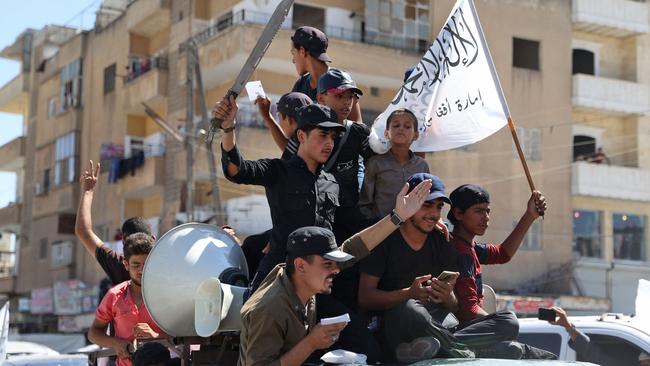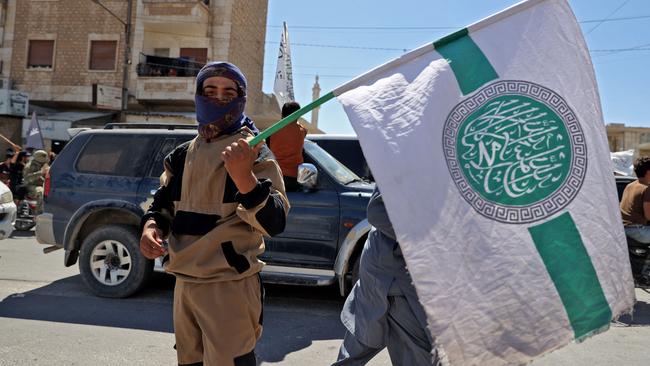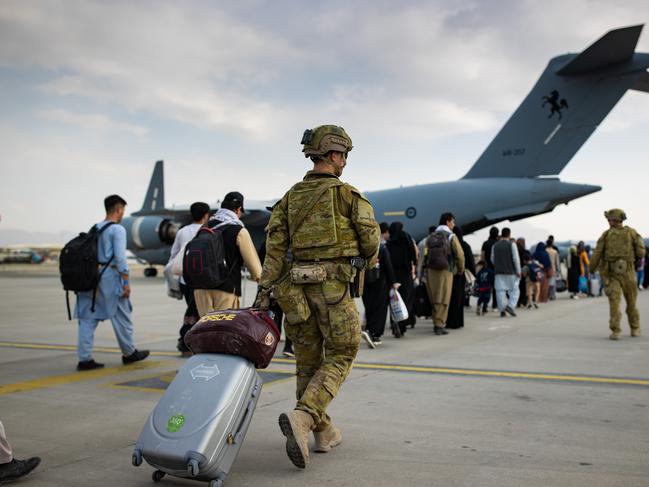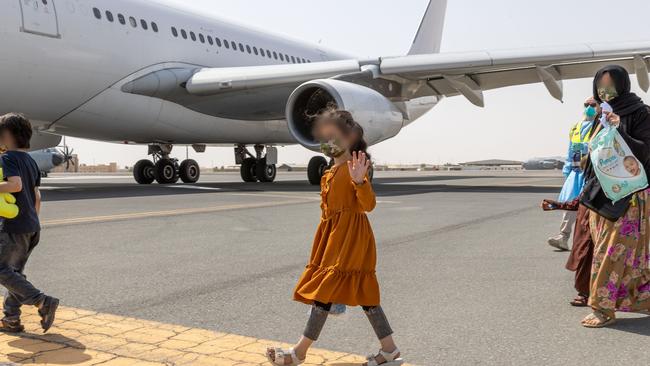Taliban’s takeover of Afghanistan means the West will face a ‘regenerated’ al-Qaeda
The Taliban’s seizure of Afghanistan has frightening consequences for al-Qaeda, who could strike Coalition nations including Australia on home soil.

World
Don't miss out on the headlines from World. Followed categories will be added to My News.
Terror group al-Qaeda could “regenerate” to significantly strike Coalition nations including Australia on home soil within two years most likely from a base in Afghanistan.
And the rapid Taliban sweep to power in that country has already “galvanised” terrorist factions that could eclipse anything ISIS ever achieved in inspiring assaults on the West.
That’s the conclusion from mounting Western intelligence in the wake of the fall of Kabul to the Taliban that now leaves foreign governments scrambling to get their troops, citizens and others out by the August 31 withdrawal deadline.
In the 20 years of conflict in Afghanistan since the 9/11 attacks, the ranks and strength of al-Qaeda was significantly diminished at the same speed that airport, airline and other security and surveillance measures globally increased.

No one group, not even ISIS, it was assumed as late as last year had the capacity or backing to mount such a large scale home-soil attack like 9/11 again.
But Western intelligence, led by the Pentagon, has re-evaluated that position with the Taliban’s victory giving groups like al-Qaeda the capacity and backing for a new generation of deadly assaults.
US intelligence passed to Coalition counterparts, warn terror networks including al-Qaeda and ISIS-K — posing a current threat about Kabul’s airport during evacuations — were already regenerating more quickly than expected, not least of all from the jihadists among 5000 prisoners the Taliban had released from Bagram jail alone in their reconquest of Afghanistan.

A notable al-Qaeda presence has already been recorded in 15 Afghan provinces, primarily in the east and southern regions and members had had communications with the Taliban contrary to agreements made last year as part of the Doha truce talks between the Taliban and the US.
A significant part of al-Qaeda’s leadership is suspected to have already moved into
Afghanistan from Pakistan where they had been in hiding from coalition forces for years.
Intelligence passed to the UN Security Council since the Taliban’s conquest of the regions concluded: “large numbers of al-Qaeda fighters and other foreign extremist elements aligned with the Taliban are located in various parts of Afghanistan”.
“Al-Qaeda and like-minded militants continue to celebrate developments in Afghanistan as a victory for the Taliban’s cause and thus for global radicalism,” the Security Council concluded.
The primary component of the Taliban in dealing with al-Qaeda is the Haqqani Network, a proscribed terror groups whose leadership is intertwined with the Taliban, based on ideological alignment, and a “relationships forged through common struggle and intermarriage”.
The Haqqani Network leader Sirajuddin Haqqani – who in 2008 himself plotted an attack on the Australian embassy and other foreigners based in Kabul’s Hotel Serena – is a deputy of the Taliban leadership now and is described in Australian intelligence as a “member of the wider al-Qaeda leadership”.

Its rejuvenation can be read on the al-Qaeda linked Thabat News Agency, an aggregator of all al-Qaeda news updates in weekly newsletters on the terror group’s successes and expansion in Afghanistan, including via its own Android application on Telegram.
Its digital sophistication and media and propaganda dissemination is now akin to that of ISIS on platforms that didn’t exist around the 2001 9/11 attacks.
US intelligence now concludes al-Qaeda core strategy is that of “strategic patience for a period of time before it would seek to plan attacks against international targets again”.
That patience appears to now be up to two years from the end of “occupation” of Kabul by foreign forces, according to US intelligence and revealed by the Pentagon.

Pentagon spokesman John Kirby last week acknowledged that al-Qaeda remained a presence in Afghanistan, though quantifying it was hard because of a reduced intelligence-gathering capability in the country.
“It is hard to quantify because it’s not like they carry identification cards and register somewhere,” he said.
Speaking to a Lowy Institute webinar overnight, leading Washington policy and analyst think tank Brookings senior fellow Dr Thomas Wright said there has been considerable concern of an ISIS-K attack as foreigners leave, to sew further chaos.

But on whether the US and allies would ever go in again to Afghanistan if it did become a base for terrorists, he said “all bets were off” in the event of a home soil attack.
“I think any president would have all options on the table … President Biden has always said the counter terrorism aspect of all of this, is one that he remains committed to,” he said.
He said as President Biden has said, however, it was no longer just about Afghanistan with terror groups in other places posing threats.
Regardless, the apparent ease in which the Taliban effectively defeated coalition forces has had an impact.
“This is a galvanising event for jihadists everywhere,” senior director for counter-terrorism in the Trump administration Chris Costa said.




